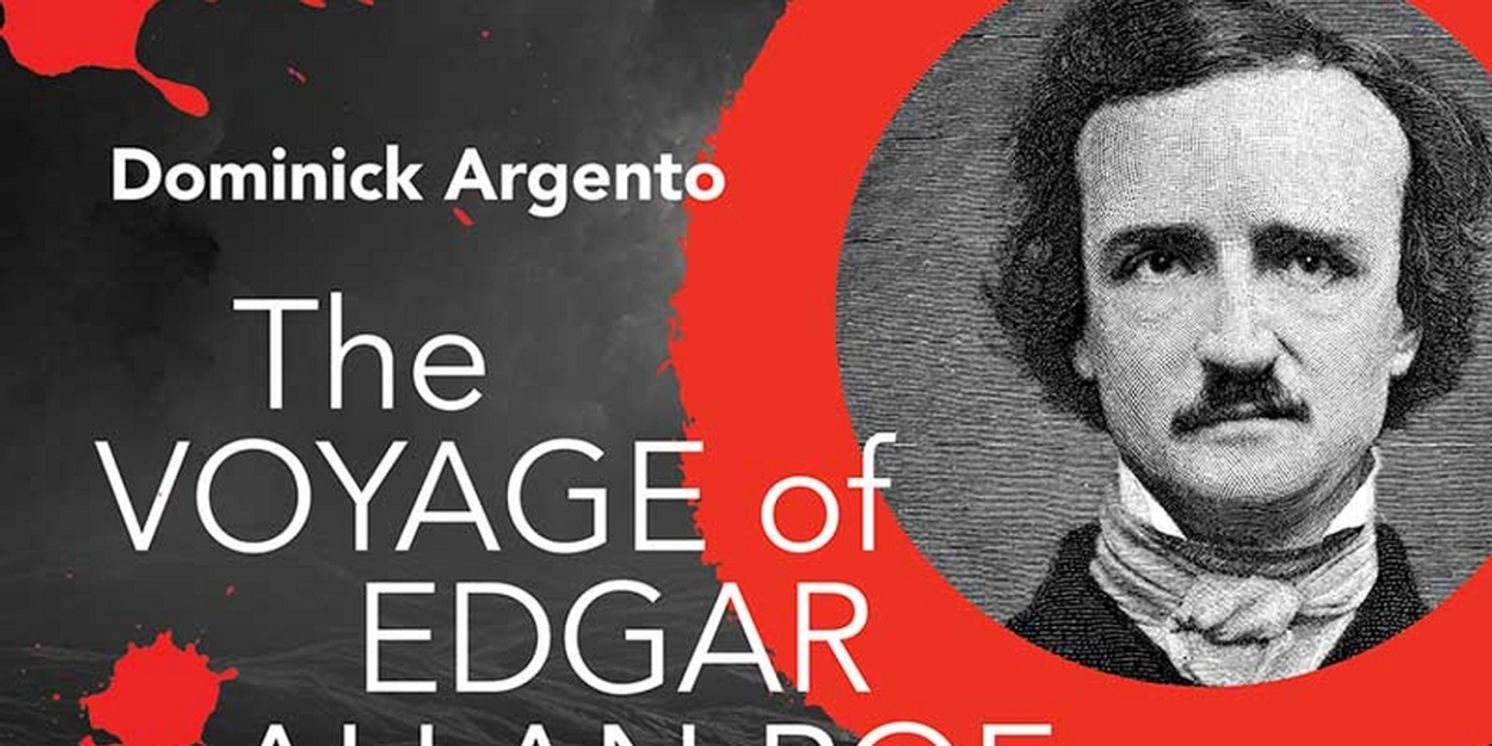Odyssey Opera Performs THE VOYAGE OF EDGAR ALLAN POE in April
The performance is on Friday, April 5, 2024.

Odyssey Opera, in partnership with the Boston Modern Orchestra Project (BMOP), presents the New England premiere of Dominick Argento’s opera The Voyage of Edgar Allan Poe, on Friday, April 5, 2024, in Poe’s birthplace of Boston. In a one-night only, semi-staged production, Grammy Award-winning conductor Gil Rose leads a formidable cast including tenor Peter Tantsits playing the lead role of Poe, the Odyssey Opera chorus, the acclaimed BMOP orchestra, and more. A world premiere studio recording will follow on BMOP/sound (TBR 2025).
Known for resurrecting neglected operas, Odyssey Opera offers this new production of a 1976 work that has not been performed in 34 years. “Poe lapsed into obscurity after its last performance in 1990. It is astonishing that this work has not been performed since,” says Gil Rose, conductor and artistic director of both Odyssey Opera and BMOP. "Dominick Argento is, for me, one of the true heroes of American opera… his music is of such a high quality that it's kind of a crime that his praises aren't sung even louder. We invite everyone to enjoy this masterpiece by a master of contemporary American opera!”
Taking its point of departure from Poe’s bizarre and subsequent deadly sail at sea, Poe takes audiences on a hallucinatory voyage of discovery. In 1849, the ill and feverish Poe—his creativity and inspiration in the doldrums after his wife Virginia’s death two years prior—sailed from Richmond to Baltimore. Less than a week later, he died, dissolute and destitute, at the age of 40. “Despite the construct of a watery voyage, this is really a journey of a frayed and feverish imagination, with fragments of Poe's works intruding upon his life story.” (The New York Times)
Commissioned by the Minnesota Opera in 1974 to write an opera in honor of America’s Bicentennial, Argento settled on the subject of Edgar Allan Poe, seemingly the first American artist to achieve international significance. The composer noted that after learning about “the mysterious voyage that led to the author’s death—as bizarre as any story Poe himself had written—Charles Nolte was eager to do the libretto. Shaping a libretto, given the many characters in Poe’s writings and his life, plus the poetry we might incorporate, was a lengthy affair, requiring quite a few months before the libretto would be exactly what I wanted.”
The premiere garnered rave reviews: “Poe is Argento’s eighth opera and as fine as any ever written by an American” (TIME); “Looking back in decades to come, the spring of ’76 may mark the coming of age in American operas” (Opera News); “a distinct success” (The New Yorker). Although the production toured throughout Europe and was heard in three U.S. cities (Baltimore, St. Paul, and Chicago), it vanished for more than three decades.
American composer Dominick Argento was born to Sicilian immigrants in 1927. Perhaps most recognized for his operatic and choral works, his song cycle From the Diary of Virginia Woolf earned him the 1975 Pulitzer Prize for Music. His compositional style combines tonality, atonality and a lyrical approach to 12-tone writing within a predominately tonal palette. In 2010, BMOP released the premiere recording of Argento’s 1973 work Jonah and The Whale (BMOP/sound). During Odyssey Opera’s 2014-15 season, it staged a double-bill of works by Argento: Miss Havisham’s Wedding Night; and A Water Bird Talk followed by its premiere recording of Argento’s three one-act operas (Released 2018).
Videos

